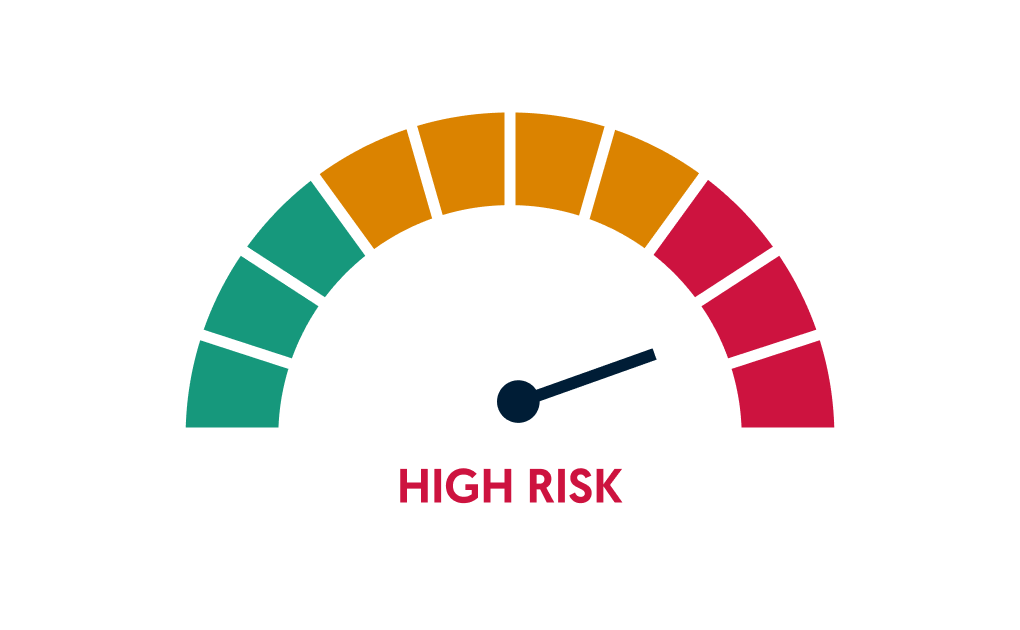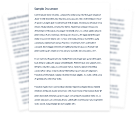Will (VIC)
A Will (Victoria) is an essential document for managing your estate, tailored to Victoria. This Will can be e-signed.
4.0 (6 reviews)
Last updated November 10, 2024
Under 10 minutes
Suitable for Victoria only
Written by Edwin Montoya Zorrilla
Reviewed by Damin Murdock
Document Overview
A Will is an essential legal document that communicates your wishes in relation to your estate. It ensures your interests and those of the people you care about are taken care of according to your wishes. Clarity in documenting your distribution of estate prevents potential conflict about any property and/or residual property that might arise. Along with life insurance, it is recommended to contact a lawyer to create your own Will and avoid the rules of intestacy - procedures on death without a Will, with assets being distributed through a set formula.
Wills, and their signing, are regulated by state, not Federal legislation. Currently, the only legislation that allows for both electronic signing and electronic witnessing of wills is Victoria. In New South Wales, wills may be electronically witnessed but not signed. Legislation in other states has seen changes in response to COVID-19, and further changes may be underway. It is IMPORTANT that you do not electronically sign and witness this will if you are making this will in New South Wales, Queensland, South Australia, Tasmania, Western Australia, the Australian Capital Territory or the Northern Territory.
What is the difference between a living Will and a last Will?
A living Will is a document that provides instructions regarding the medical care a person wishes to receive if they happen to become incapacitated or seriously ill unexpectedly. A last Will is a document that provides instructions for what should happen to a person’s assets after his or her death. The difference between the two is that a last Will does not take effect until after the person’s death, but a living Will comes into effect whilst the person is still alive but incapacitated.
What are the key inclusions in a Will?:
Assets/Inheritance - anything owned by the deceased person before his or her death. For example real property, intellectual property, business ownership, cash, bank accounts, shares, cars, jewellery etc.
Debt - any debts owed by the deceased person before his or her death. Upon a person’s death, the liability to pay those debts would fall onto the deceased estate.
Beneficiaries - these are the person(s) named by the deceased person in their Will as those who would benefit from his or her estate. Often family members and relatives.
Executor - the person, nominated by the deceased to hold the responsibility of carrying out the deceased person’s wishes as stated in the Will, is known as the executor of the Will.
Guardian/Guardianship for Children - when one of the beneficiaries in the Will is under age (i.e. under 18) the deceased person would often appoint a guardian to hold the child’s benefit on trust until they are of age.
How do I make my Will legally binding?
There are several requirements for a Will to become legally binding. In order to have a valid Will, the Will must be in writing, the Will must be signed by the testator at the end of the Will, the testator's signature must be witnessed by two witnesses and the witnesses must sign the Will in the presence of the testator and each other.
How does a Will deal with digital assets?
Digital assets are a part of your estate and are treated the same by courts as any other asset that is to be dealt with through the execution of a Will.
How often should you review your Will?
With a Will, it is best to review it after certain events in your life. Such events may include marriage, divorce and after a medical diagnosis or important surgery. When circumstances like this arise in life, it is best you revise your Will to ensure that you, and your family, are prepared for whatever may come in the future. It is important to note that in the event of a divorce, the Will still applies but it will invalidate any entitlements and specific gifts for your former spouse.
What are the next steps after finalising your Will?
Finalising your Will is similar to making it legally binding. In order to finalise the Will, the Will needs to be executed and signed. The person signing the ill must also have the legal capacity, mental capacity and sound mind to do so and know the consequences of their decisions when it comes to the Will. The Will also has to be signed by two witnesses.
What if I want to modify my Will after finalising?
If circumstances change and you wish to modify your Will, you can use a "codicil" amendment on the original Will to create the new Will. A codicil is a separate document and must be read out with the Will, stating its sole purpose to change the Will. Modifications can also be made with a previously appointed enduring Power of Attorney who has permission to manage all possessions, being legal and financial affairs, to buying and selling real estate. You can access a Codicil to a Will on the Lawpath platform.
The Legal Risk Score of a Will (VIC) Template
Our legal team have marked this document as high risk considering:
- It requires a highly specific signing procedure.
- It generally involves the distribution of high-value assets.
- If improperly drafted, it can be challenged in court.

Will (VIC) Checklist
Complete your free Will (VIC) with our checklist
Sign the document
Follow the procedures laid out in the document
Store the document safely
Wills are only valid as long as they can be presented in their original form to a court.
Disclose the document according to your wishes
You may wish to let beneficiaries and/or the executor know about your intentions.
Use this Will if:
- You would like your property to be distributed according to your wishes;
- You would like to name the particular people and/or organisations that will receive your property when you are deceased;
- You would like to appoint someone to execute your Will; and
- You would like to appoint someone to hold your property on trust for minor children when you are deceased.
What does the Will cover?
- Appointing an executor of your Will;
- Gifts of property;
- Donations;
- Funeral arrangements;
- Payment from your estate;
- Allocation of land and money; and
- Passing along digital assets.
Other names for Will include:
- Last Will and Testament; and
- Last Wishes.
Further information
View Sample Will (VIC)
It's never been so easy
Sign-up to a free Lawpath account
Get started and we'll take care of you. It's that easy.
Browse our 550+ legal documents
Browse our 550+ legal documents to find the perfect match to cover your business needs. We've got Compliance, Employment, Service agreements and more.
Collaborate with e-Sign and Sharing
Having access to your legal documents has never been easier. You can request e-signature, share the document and download for an efficient collaboration.
Create unlimited legal documents and eSignatures for only $39/month.
Upgrade to a Lawpath legal plan to boost your new business.


Here's what people say about Lawpath's Will (VIC)
Reviews are managed by BazaarVoice and comply with the BazaarVoice Authenticity Policy. Reviews are independently verified by BazaarVoice and detail our customers' real experiences.
0 reviews
Most Recent
Highest to Lowest Rating
Lowest to Highest Rating

